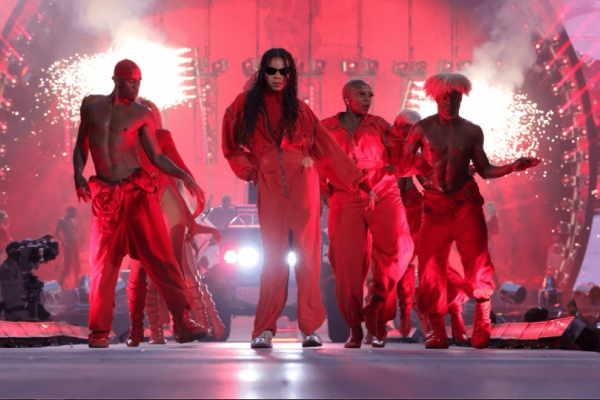This is my body, broken for you.
With those words, Jesus redefined the meaning of the Passover forever. No longer was the ancient story just about the past and the patriarchs. The lamb’s blood painted with hyssop on the mantel, a message to the angel of death that the one behind this door belonged to God.
Thirty-three years before that meal, a girl named Mary reached the ninth month of her pregnancy. There, on the ground of a stable, contractions seizing with increasing intensity, Mary’s body was given for Jesus. As any woman who has had a baby intimately knows, after the baby comes the blood.
I am scarcely more than one year into parenthood. When COVID-19 began and people were scrambling to prepare for isolation in my city, I didn’t understand at first. My schedule as a stay-at-home mom was unchanged. Keeping a young child alive, by definition, is isolating. What COVID-19 added was the fear. The fear that though I give my body, my blood, myself to my child, I cannot protect him from this.
During this Holy Week I have thought of COVID-19 and my son, and I have thought of Mary, looking up at her mutilated son on the cross.
“My body, broken for you,” Mary may have said if her nipples bled as she and Jesus learned together how to give and receive milk. My body, broken for you, as she lost sleep and lost track of time, and lost all sense of normalcy with the infant Jesus’ constant needs. In a million tiny ways, throughout the hours and days and weeks of Jesus’ young life, Mary was giving her body and blood so that Jesus might live. One day, his body would break for Mary, but before that time came, as a baby, Jesus was kept alive by Mary’s body.
Behind a million doors, parents wake to babies cries, greeting the dawn with the ones for whom they have spilled their blood and had their bodies broken. Could it be that diaper changes and rocking and shushing and redirecting, and a host of sundries that make up the life of a parent, giving their physical selves to their child so that their child might live, are acts of worship to the one who gave his body to us, his children? Parenthood is nothing if not a prayer.
I have a son and I would gladly spill my blood if it meant he wouldn’t have to spill his. Put more bluntly, I would willingly get COVID-19 if it meant I would produce antibodies that could then be given to my son if he also got the virus. All of Mary’s life, her body was given as a gift, protecting Jesus until that moment on the cross, when his body became the ultimate gift, ensuring that death would pass over, and humanity through the spilling of his blood. Christ’s life among us has always included both his and our bodies.
Thousands of years later, the mystery of Christ’s incarnation, death, and resurrection can be held at a distance and examined as theological concepts by those of us who talk about everything but the body. But this Holy Week, we don’t have that option. This Holy Week is physical. Ironically, the physicality is present because a virus so contagious that the way we fight it is with distance renders our meeting together impossible.
Christ’s body, as we know, was buried. When another Mary came to the tomb, she wept. Perhaps this Holy Week, we can relate to the tears of bitter frustration that this was not how it was supposed to be. Perhaps this Holy Week, we won’t have to imagine the heaviness of fresh grief or the burden of the looming unknown. We feel it too. The story was not supposed to unfold this way. We join Mary in the garden this Holy Week and Easter, weeping and alone, our physical bodies feeling the weight of this season.
Yet, it was in the garden that Jesus reveals himself to Mary as the risen Savior. Mary doesn’t recognize, doesn’t understand, doesn’t get it at all, until Jesus speaks her name. At the sound of her name in Jesus’ voice, her vision clears. Mary rushes to him, crying out, “Teacher!” which, I think means, “It’s you!”
The story continues with Jesus’ continued physical revelations to small groups of people. He eats fish with the disciples, offers the scars on his hands to his friend Thomas to prod and examine, and walks with the travelers on the Emmaus road.
Only much later did a corporate gathering occur, and on that day, the Holy Spirit fell in power, and the number of those who believed increased (Acts 2). Be encouraged: We will meet together again, and I believe the Spirit will fall with fresh anointing when we do.
But this Holy Week, like Mary, let us bring our tears and grief to the garden, pouring out our hearts, explaining all the ways it shouldn’t have to be like this. And like Mary, in the intimacy of our disappointment, may we hear Jesus call our name.
Got something to say about what you're reading? We value your feedback!







